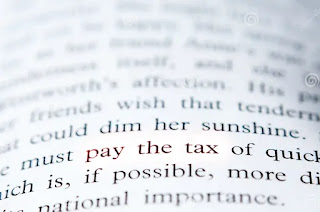Bahamian families struggle under the weight of high prices for food, household items, and basic hygiene necessities
The Bahamas Government Announced Tax Relief for Bahamian Consumers in Its 2025/2026 Fiscal Budget Communication to The People's Parliament
NASSAU, The Bahamas – While addressing the topic of Affordability Measures, during his 2025/2026 Budget Communication to Parliament, on May 28, 2025, Prime Minister and Minister of Finance the Hon. Philip Davis pointed out that, due to the recent effects of global inflation, economies around the world – including The Bahamas’ – have faced significant price increases.
“As a result, Bahamian families have struggled under the weight of high prices for food, household items, and basic hygiene necessities,” Prime Minister Davis said in the House of Assembly. “This administration understands their difficulty, and in this Budget, we are acting decisively to bring relief to the people.”
He added: “As part of the ongoing efforts to promote affordability, we will be reducing the VAT rate to 5 percent on a range of products that are crucial for the well-being of our citizens. These include: baby diapers; Depends; feminine hygiene products; prescription and non-prescription drugs including medications for those with chronic conditions; medical and dental supplies such as needles, blood pressure machines, lancets, dental cements and other dental fillings; and, of course, other medical and therapeutic items such as cell therapy products."
Prime Minister Davis noted that those reductions, that would take effect on September 1, 2025, were aimed at ensuring that Bahamians of all ages and stages of life “can access essential products without the added burden of high taxes”.
“Under the amended VAT Act, we are also extending VAT relief on building materials for religious institutions, in recognition of their vital role in supporting and uplifting communities,” he stated. “This VAT relief will come in the form of VAT exempt imports or as a refund system if purchased locally. In addition, customs duty is being removed from digital and changeable letter signs, making it more affordable for them to enhance their visibility and communication efforts.”
Prime Minister Davis continued: "We are also reducing customs duties on dozens of essential items -- products that Bahamians purchase every week -- items that matter in every kitchen, every bathroom, every nursery, and every home. We are helping families, homeowners, and small contractors by removing the customs duty on the following items: refractory cement, mortars, and concrete, and similar compositions; copper fittings; screws; and nuts and bolts, simple but essential hardware.”
Prime Minister Davis announced that his Government was reducing duty on the following items: cleaning products; electric or battery-operated shavers; juice extractors; trucks weighing 20 tons and above; and filters of all kinds – from water to air conditioning filters.
He added that his Government was also taking steps to reduce the cost of fuel sources used by numerous households in The Bahamas.
“We are removing the 45 percent excise duty on butane fuel mostly used in portable stoves,” he stated. “Many Bahamians rely on this fuel for a hot meal, whether day-to-day or during emergencies. This is part of our broader commitment to build resilience and affordability into everyday life, especially where it may help the most.”
Prime Minister said that The Bahamas was committed to reducing greenhouse gas emissions by 30 percent by 2030 and achieving net-zero emissions by 2050, in line with the Paris Agreement.
“Our clean energy transition includes expanding renewable energy, promoting electric vehicles, and improving energy efficiency through key initiatives and projects,” he pointed out.
“Duty exemptions on household appliances with the highest level of energy efficiency will be granted,” Prime Minister Davis added. “Freezers, air conditioners, and gas and electric water heaters will be duty free, once confirmed that the appliance will make a positive impact on climate change initiatives. These exemptions encourage Bahamians to adopt cleaner technologies, directly contributing to our climate goals and a sustainable future for us all.
“In addition to these measures, prefabricated homes can now be imported with prior approval from Ministry of Works.”









